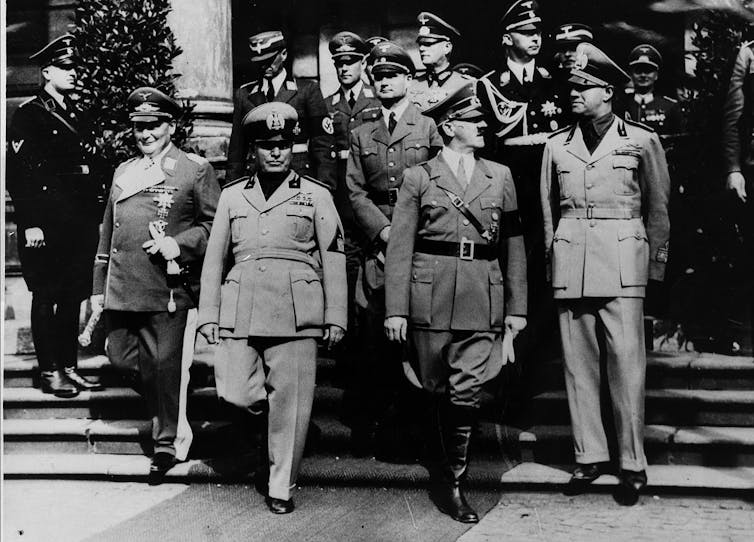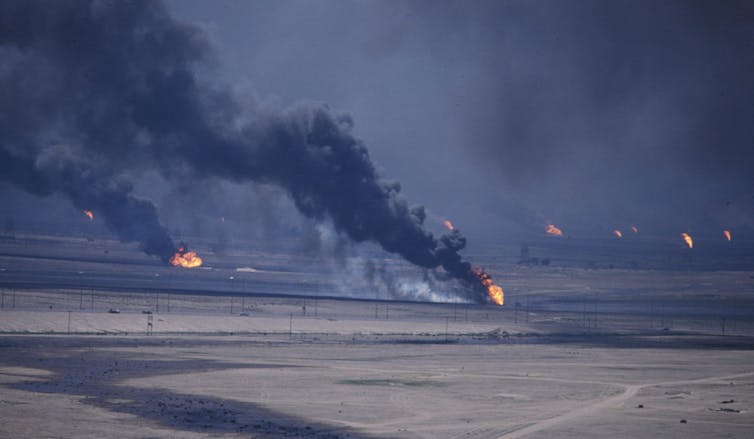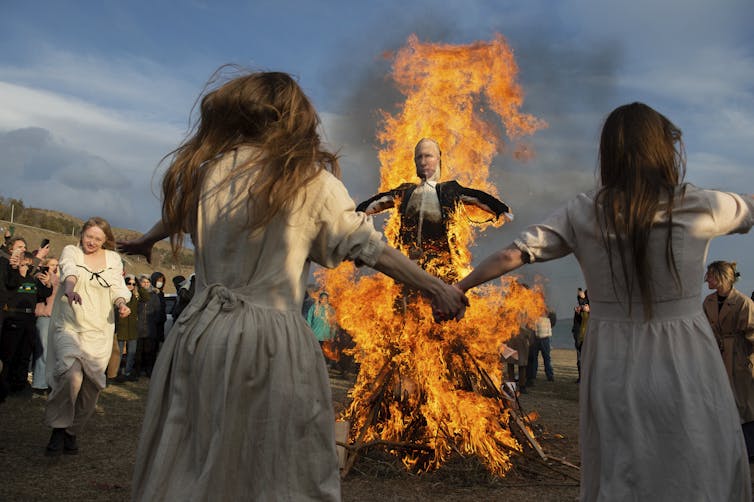
Edmund Adam, McMaster University
Throughout history, elective wars like the one in Ukraine — armed military conflicts that countries wage without compelling and urgent reasons for action — have mostly failed to achieve their aims. Instead, they worsen the problems they set out to solve and often become the undoing of those who started the conflict.
Of the oldest written records of how this dynamic played out is contained in the work of Thucydides, the Athenian historian and general who chronicled the Peloponnesian War (431-404 BCE) between ancient Greece’s most powerful city-states: Athens and Sparta.
In his History of the Peloponnesian War, Thucydides records that in 416 BCE, the Athenians decide on a whim to invade the island of Melos, which, although an ally of Sparta, didn’t join Sparta in the war against Athens.
The Melians’ pleas for justice fell on the deaf ears of the Athenians who demanded that the Melians surrender, pay tribute to and join Athen’s confederacy or face destruction. The campaign ended tragically with the entire civilian population of Melos facing all kinds of atrocities for refusing to surrender to the Athenians, who saw their unbridled power as sufficient basis to inflict grave injustice.

Intoxicated by power, the Athenians’ reply, according to Thucydides’ account, was essentially: “The strong do what they can and the weak suffer what they must.” This principle, Thucydides shows, was the driving force behind Athens’s aggressive approach toward its neighbours.
Over time, it fuelled deep-seated anger and resentment among Melians and citizens of other city-states who sought revenge by ultimately joining forces with Sparta to defeat Athens in 404 BCE.
Downfalls triggered
As the Russian invasion of Ukraine illustrates, the dynamics of great power politics haven’t changed much in more recent history. The lure of using brute force to achieve quick economic and geopolitical gains has created a rolling tide of military mobilization that has carried countries into battle.
History often repeats itself in that those battles trigger the downfall of the stronger party who unnecessarily drew the first blood.
In the 1930s, fascist regimes used offensive wars as consolation when grandiose promises proved hollow. As the Great Depression dragged on, Italy’s Benito Mussolini sought to divert public attention from his economic failures through a series of costly military adventures in Greece, the former Yugoslavia and Ethiopia.
These episodes created economic havoc for Italians rather than glory before Italy’s entry to the Second World War. The war accelerated Mussolini’s downward spiral even among his own fascist clique, which ousted him in 1943.
In the same time period, Adolf Hitler thought Germany needed lebenstraum — living space — to ease its economic strains. He then proceeded with unprovoked invasions of Czechoslovakia and Poland to expand Germany’s territory, sparking the Second World War in 1939.

To achieve his ideal of a racial utopia, Hitler’s war not only unleashed a genocide of six million Jews and persecution on a scale few could have imagined, it also undermined the entire German economy and the country’s military capabilities.
Hitler’s delusional leadership ultimately resulted in a series of defeats and defections, culminating in assassination attempts on Hitler himself and finally the collapse of Nazi Germany and the führer’s suicide on April 30, 1945.
The Middle East also saw a number of elective wars that marked the beginning of the end of the regimes that waged them. Muammar Gadhafi’s war against Chad (1978-87) is one example.
Saddam Hussein’s 1991 invasion of Kuwait is another.
Both regimes envisioned wars of national glory only to plunge their countries into quagmires that took huge human and economic tolls and severely diminished public confidence in their leadership.

Why elective wars fail
War is often a failure in itself. However, elective wars constitute a special kind of failure.
First and foremost, they lose public support quickly. They often begin with sabre-rattling and narratives that exalt an alleged heroic past and envision a war of national glory, similar to Russian President Vladimir Putin’s rhetoric prior to the invasion of Ukraine.

But as the war drags on and the futility of war becomes more obvious, people begin to question the strategic importance and moral foundations of war. It’s difficult for regimes to galvanize public opinion or maintain people’s willingness to accept the sacrifices associated with war — especially when it’s a drain on resources, causes economic hardship and lowers living standards.
When that happens, regimes face two hard choices. One is to admit their mistake and reverse action. That rarely happens. The second is to suppress dissenting opinions, project an image of popular support for the war and stay the course despite mistakes that later lead to further errors and conflict within the power elite.
Elective wars often fail because they attempt to eliminate old animosities but instead create new ones. They also shred the ethnic bonds within conquered territories.

This results in time bombs that can go off at any moment, since few modern economies can function well within a hostile environment.
“The empires of the future are empires of the mind,” Winston Churchill presciently said in a 1943 speech at the height of the Second World War.
Churchill seemingly realized that wars aimed at territorial expansion won’t ensure national security or economic prosperity, and the future belongs to those who invest in education, knowledge production and innovation rather than wage meaningless wars that create nothing but misery.![]()
Edmund Adam, Postdoctoral fellow, Department of Communication Studies & Media Arts, McMaster University
This article is republished from The Conversation under a Creative Commons license. Read the original article.

